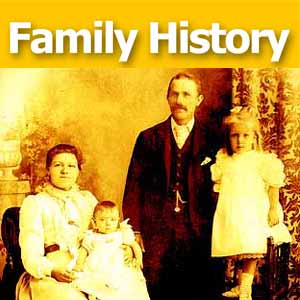by Lisa Cooke | Jun 15, 2015 | 01 What's New, African-American, Beginner, Brick Wall, Census, images, Listeners & Readers
 Have you ever had a case of a missing birth record, in a time and place where you know there should be one? It’s so frustrating! Recently Michelle shared her missing birth record dilemma on our Genealogy Gems Facebook page:
Have you ever had a case of a missing birth record, in a time and place where you know there should be one? It’s so frustrating! Recently Michelle shared her missing birth record dilemma on our Genealogy Gems Facebook page:
 “I am having a problem with my grandfather’s birth certificate. Everyone in the family says he was born in Tupelo, MS yet when I requested his BC they did not locate it. I am unsure where to even start looking. I have not been able to locate them on the 1930 Census either. He was born in 1921. Any suggestions on how I can narrow my search for his birth certificate would be helpful.”
“I am having a problem with my grandfather’s birth certificate. Everyone in the family says he was born in Tupelo, MS yet when I requested his BC they did not locate it. I am unsure where to even start looking. I have not been able to locate them on the 1930 Census either. He was born in 1921. Any suggestions on how I can narrow my search for his birth certificate would be helpful.”
Without knowing the specifics of her family, and without knowing the Tupelo area or Mississippi records well, it’s hard to give the perfect answer. But here are some ideas worth considering:
- In that time and place, many births were still home births with midwives in attendance. By this date, midwives were required to record the birth record but it’s possible this one was missed or filed later (so it might not show up in order, if the record is chronological by date of filing).
- If your grandfather had any known African-American ancestry at all, his birth might be recorded in a separate place (“colored register”).
- It’s a long shot for someone born this late in time, but ask whether his birth appears in the delayed birth records collection. (I’m not sure, for this locale, whether that was kept at the county level or not.) Click here to hear a free Family History: Genealogy Made Easy podcast episode on birth records and delayed birth records.
- I would also look to neighboring counties and towns. It’s possible he was born outside of Tupelo and the family just remembers that as being the nearest city.
- If you can’t find the family in the 1930 census, that’s a red flag that perhaps they didn’t live there at the time. (Browse the census pages to be sure, instead of just relying on the index to search the name.)
- Finally, I would definitely call the local genealogical society and ask their volunteers this question! They may know of additional records that exist, or a reason he might not be there.
 Learn more about family history sleuthing strategies like these in the free Family History: Genealogy Made Easy podcast, which takes listeners step-by-step into the world of genealogy research. It’s great for a “true” beginner and for anyone who could use a refresher on any or all of the topics we cover.
Learn more about family history sleuthing strategies like these in the free Family History: Genealogy Made Easy podcast, which takes listeners step-by-step into the world of genealogy research. It’s great for a “true” beginner and for anyone who could use a refresher on any or all of the topics we cover.
by Lisa Cooke | Mar 8, 2014 | 01 What's New, Inspiration
 Everyone’s families have a little bit of mystery in their past–or a lot!
Everyone’s families have a little bit of mystery in their past–or a lot!
TheBlaze.com recently posted this great story about a woman who was able to solve a longtime family history mystery by posting it online at Metafilter.com, a crowd-source blog. She posted this query:
“In my grandmother’s final days battling brain cancer, she became unable to speak and she filled dozens of index cards with random letters of the alphabet. I’m beginning to think that they are the first letters in the words of song lyrics, and would love to know what song this was. This is a crazy long shot, but I’ve seen Mefites [other site users] pull off some pretty impressive code-breaking before!” Then she posted the “code” from one of the cards.
Within 15 minutes someone solved part of the puzzle: a section of the code was the first letters of the prayer from the New Testament, “Our Father who art in heaven, hallowed be thy name….”
Have YOU ever been faced with indecipherable notes left behind by a family member? What family history mystery do you wish an online community could help you solve? Share this on the Genealogy Gems Facebook page and leave your answers.
by Lisa Cooke | Aug 6, 2015 | 01 What's New, images, Who Do You Think You Are?

Photo (credit: TLC)
This Sunday, August 9 at 9/8c TLC will air actress Alfre Woodard’s episode of Who Do You Think You Are?
In the episode, Alfre Woodard sets out to learn more about her paternal grandfather’s family, which she knows little about since her grandfather died before she knew him. She uncovers the triumphant story of her great-grandfather Alec, who endured the horrors of slavery and ascended from servitude to successful landowner, an extraordinary feat of his time.
Catch a sneak peek of the episode here!
Next week, TLC will air a special episode of the series entitled ‘Into The Archives.’ The special digs into its archives, featuring highlights throughout the past seasons, including triumphs and tragedies, delightful discoveries and sobering moments. This special episode also unveils outtakes and never-before-seen footage from the series’ vault.
 Ready to get started learning about your own family history? Listen to our free Family History: Genealogy Made Easy podcast here. Also available through iTunes.
Ready to get started learning about your own family history? Listen to our free Family History: Genealogy Made Easy podcast here. Also available through iTunes.
You can also subscribe to our free weekly newsletter for more tips and strategies for learning how to climb your family tree.
by Lisa Cooke | May 4, 2015 | 01 What's New, images, Newspaper, Preservation, United States
 According to a news story by IowaWatch.org, current Iowa newspapers are piling up at the archives of the State Historical Society of Iowa in Des Moines, with no current plan to microfilm or otherwise preserve them.
According to a news story by IowaWatch.org, current Iowa newspapers are piling up at the archives of the State Historical Society of Iowa in Des Moines, with no current plan to microfilm or otherwise preserve them.
“Traditionally, the papers would have been sent off [for microfilming], but a 2009 budget cut ended that 50-year practice,” says the report. “A bill proposed last year would have provided funds for the backlog, but the Iowa Department of Cultural Affairs, which oversees the historical society, put on the breaks. It rejected the proposed funding citing pending completion of a master planning process and assessment study to evaluate what it has in the archives and how to preserve those materials in the future.”
Over 1500 bundles of newspapers await microfilm preservation, at an estimated cost of around a quarter million dollars. Officials state that they are reviewing a master plan for preserving all important materials in the state archive, not just newspapers. Click here to read the full story.
What can you do to ensure that today’s newspaper history lives on in your family
- Digitize current obituaries and articles that mention your family.
- Image meaningful headlines and write a journal entry about why they are important to you.
- Keep track of these images, full source citations and your thoughts in organizational software like Evernote and attach them to your family tree in your own software and in your online trees.
 Meanwhile, make the most of what historical newspapers had to say about your family. More of these papers are accessible online, either directly as digitized content or through microfilm rentals or research services you can learn about online. Learn more in Lisa’s book, How to Find Your Family History in Newspapers.
Meanwhile, make the most of what historical newspapers had to say about your family. More of these papers are accessible online, either directly as digitized content or through microfilm rentals or research services you can learn about online. Learn more in Lisa’s book, How to Find Your Family History in Newspapers.
 Have you ever had a case of a missing birth record, in a time and place where you know there should be one? It’s so frustrating! Recently Michelle shared her missing birth record dilemma on our Genealogy Gems Facebook page:
Have you ever had a case of a missing birth record, in a time and place where you know there should be one? It’s so frustrating! Recently Michelle shared her missing birth record dilemma on our Genealogy Gems Facebook page: “I am having a problem with my grandfather’s birth certificate. Everyone in the family says he was born in Tupelo, MS yet when I requested his BC they did not locate it. I am unsure where to even start looking. I have not been able to locate them on the 1930 Census either. He was born in 1921. Any suggestions on how I can narrow my search for his birth certificate would be helpful.”
“I am having a problem with my grandfather’s birth certificate. Everyone in the family says he was born in Tupelo, MS yet when I requested his BC they did not locate it. I am unsure where to even start looking. I have not been able to locate them on the 1930 Census either. He was born in 1921. Any suggestions on how I can narrow my search for his birth certificate would be helpful.” Learn more about family history sleuthing strategies like these in the free Family History: Genealogy Made Easy podcast, which takes listeners step-by-step into the world of genealogy research. It’s great for a “true” beginner and for anyone who could use a refresher on any or all of the topics we cover.
Learn more about family history sleuthing strategies like these in the free Family History: Genealogy Made Easy podcast, which takes listeners step-by-step into the world of genealogy research. It’s great for a “true” beginner and for anyone who could use a refresher on any or all of the topics we cover.




